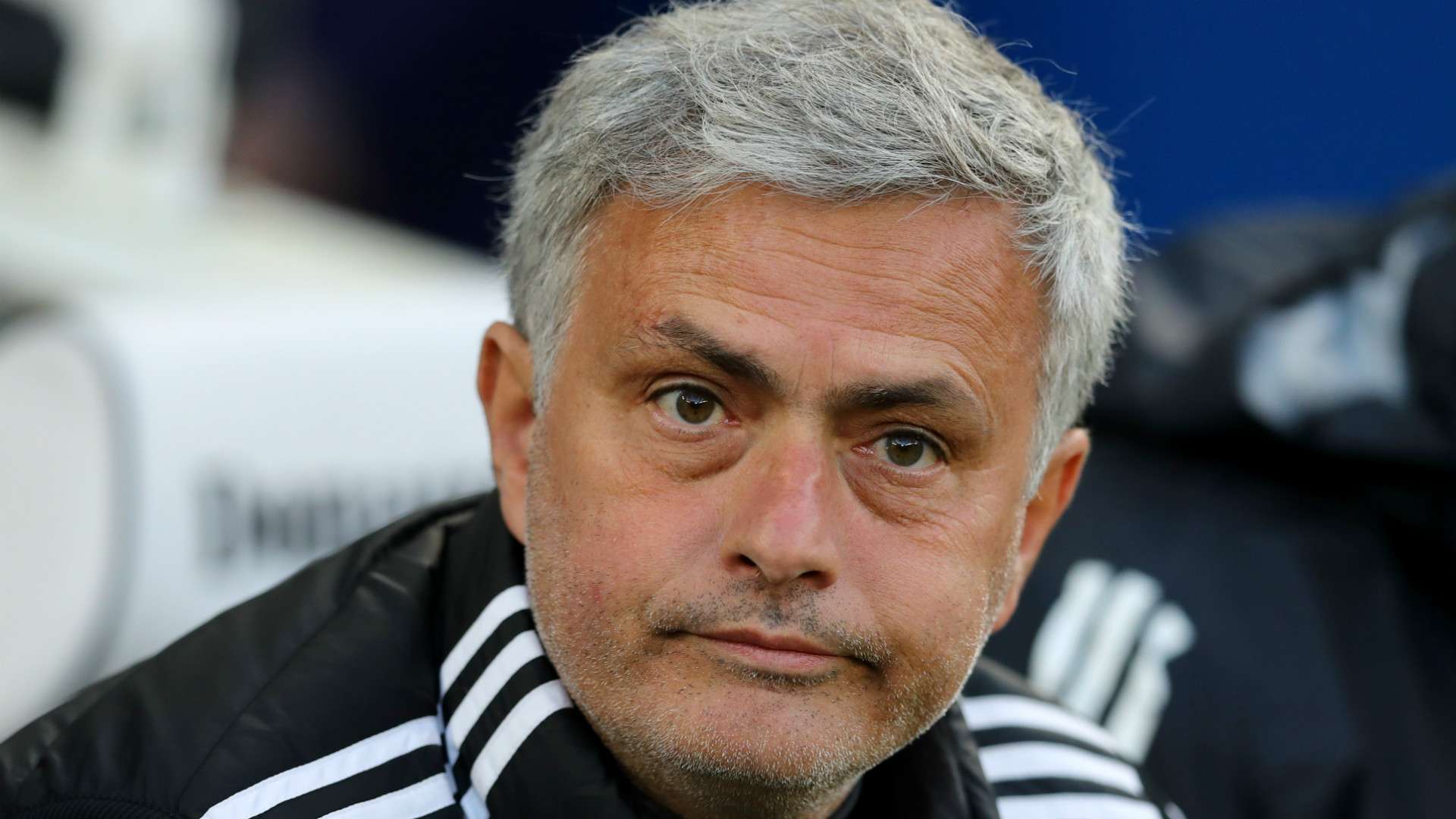Manchester United’s inconsistencies this season have made them incredibly hard to judge.
They beat every team in the Premier League yet also lost to all three promoted sides. They registered a first top-two finish in five years, yet were a distant 19 points adrift of champions Manchester City. And despite the fact they face Chelsea in Saturday’s FA Cup final, their humbling Champions League exit to Sevilla is likely to remain the most memorable moment of their campaign whether they win or lose at Wembley.
One thing that there seems little disagreement on is the assertion that this United side still does not have the hallmarks of a true Jose Mourinho outfit. Two years into his regime at Old Trafford, there remains a transitional feel around his squad. If anything, there are more reminders of his post-2010 failures at Real Madrid and Chelsea than there are of his successes at Inter and in his first Stamford Bridge stint.
While he struggles to find the fire inside the likes of the talented Anthony Martial and Luke Shaw, he has been able to draw crucial, if fleeting, interventions out of unfancied figures such as Marouane Fellaini and Scott McTominay.
When compared to the machine he built at Chelsea between 2004 and 2007, the current United squad simply does not match up. At the Bridge, Mourinho had warriors in John Terry, Frank Lampard and Didier Drogba, and around them he formed an intimidating unit.
The Blues played high-percentage, effective football, with the mental toughness shown on the pitch being a mirror image of what we found in their manager. He was able to get them doing all the one-per-cent work week after week and gained the benefits in leading Chelsea to consecutive league titles in his first two seasons.
“We call him daddy,” revealed Drogba to the Guardian. “I don’t know about all of us but he did a lot of things for me during that moment where I had a lot of critics. He was supporting me and helping me.”
That siege mentality, the all-for-one, one-for-all approach, had already been made famous by Sir Alex Ferguson at United, but Mourinho used a more intense variation in order to ensure that players who had bundles of potential were able to deliver their best for the Chelsea cause.
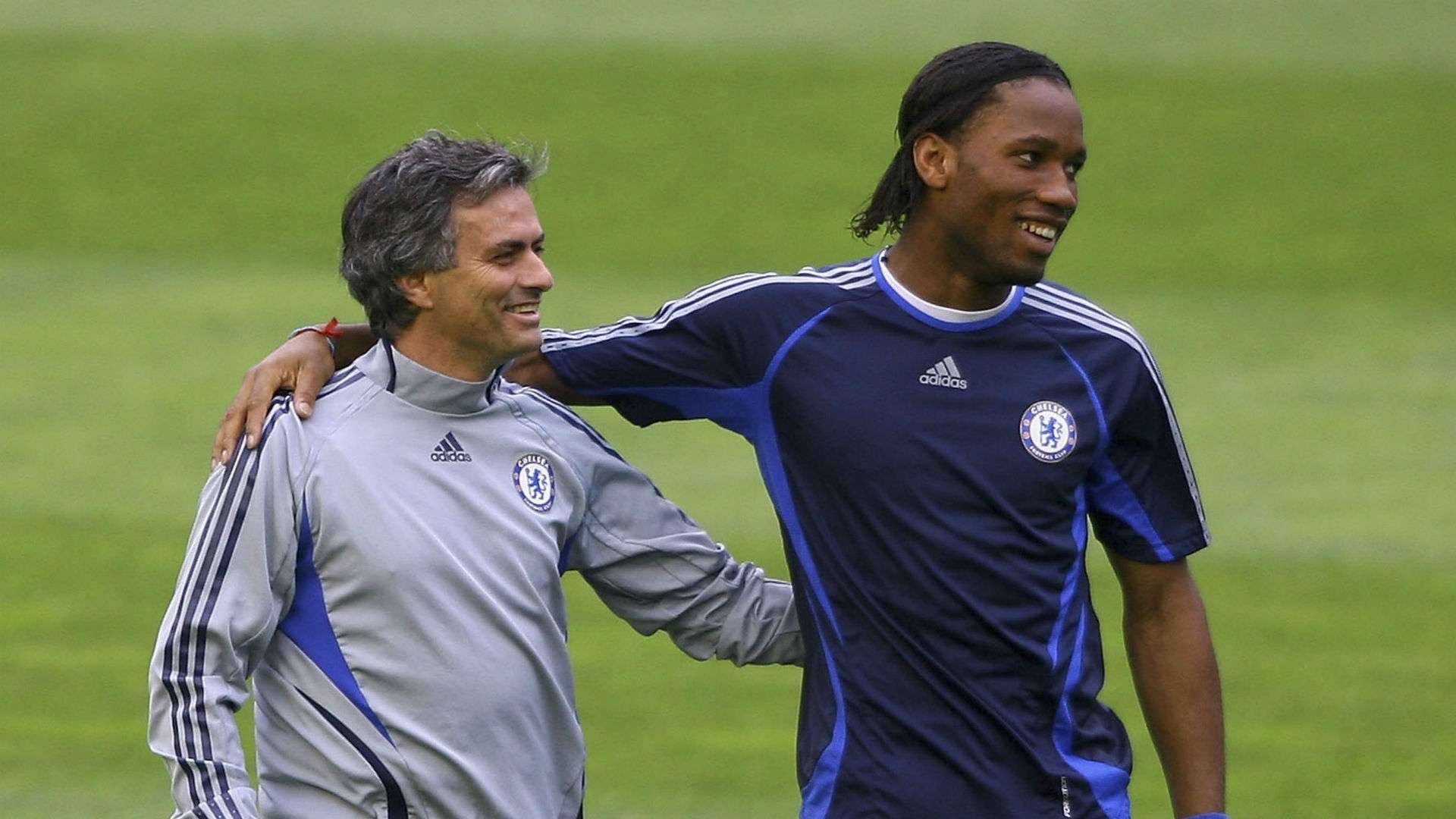 Getty
Getty
“Jose said that to me that I was the best in the world,” Lampard would explain years later. “I certainly didn’t believe it at the time and I don’t know how much he did – but it was great man management.
“I took it at face value and thought: ‘If my manager I’m working for is saying that, I’m going to have to show him that he’s right’.
“I didn’t want to be that player who let him down. I was quite conscientious and wanted to make him happy. He managed to give me confidence that I could do it and I loved going into work.”
So far, Mourinho hasn’t been able to engender such unstinting support from his United troops. There so often appears to be a disconnect between what he wants from his team and what he is getting. Romelu Lukaku has largely delivered in attack and Nemanja Matic has had an impact in midfield, but even Paul Pogba, who has scored 11 goals and added 14 assists in his 60 league appearances since returning to the club, has had public difficulties with the manager in 2018.
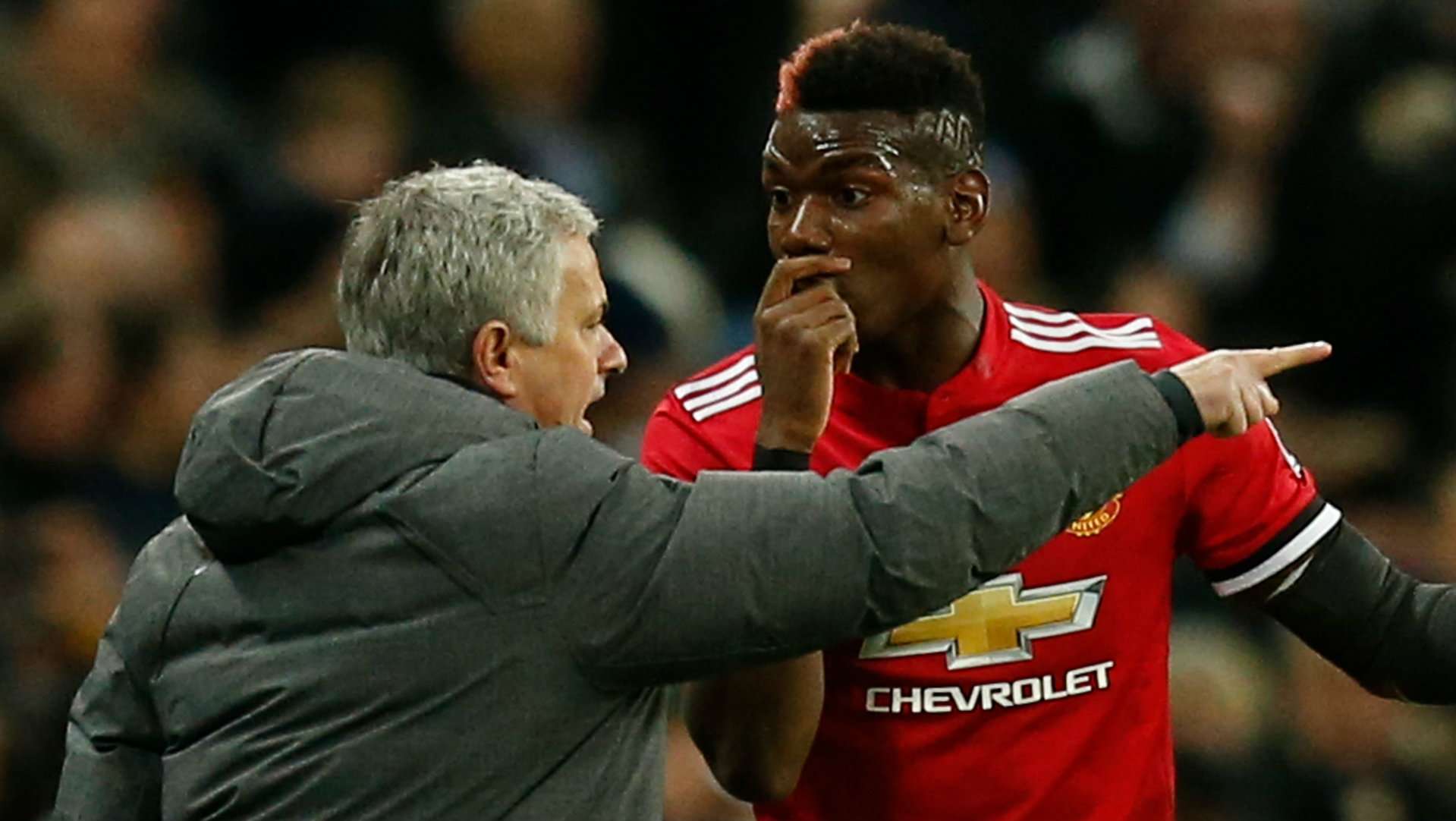 Getty Images
Getty Images
Instead it is the players who do not carry a big name and huge expectation who have received a lot of public praise from the manager. Fellaini has been trusted in big moments when Mourinho has despaired of the lack of effective outlets in his attacking midfield line, and the boss has made it clear he wants the Belgian for the longer term despite his contract expiring.
Elsewhere McTominay was the man he turned to to keep Ever Banega quiet in Seville and hold Eden Hazard’s reins when United beat Chelsea at Old Trafford. It is also the young Scot who Mourinho made a point of handing a ‘Manager’s Player of the Year’ award to in light of his desire to do anything and everything the Portuguese asked of him.
Since Mourinho has been unable to rally his senior players around him in the way he did at Chelsea, he has held up McTominay as the example of work-rate and professionalism. It also helps that the midfielder has shot up to around 6’5” in the last few years, helping him to become a far more imposing figure who can attempt to carry himself in the same way some of his manager’s most successful alumni have in the past.
Others to have featured heavily include Ashley Young, who has got his head down and worked hard in adapting to a deeper role under Mourinho and earned a place in the England World Cup squad off the back of it. Jesse Lingard, too, has reacted positively to his manager’s teachings and has become a club and international regular as a result.
Yet for every potential warrior and selfless team player he sees in his United squad, he sees somebody else who isn’t given him what he needs. While Martial, Shaw and Marcus Rashford take increasingly lengthy spells to adapt to the Mourinho way, the boss is giving them little leeway until they show they’re meeting his standards.
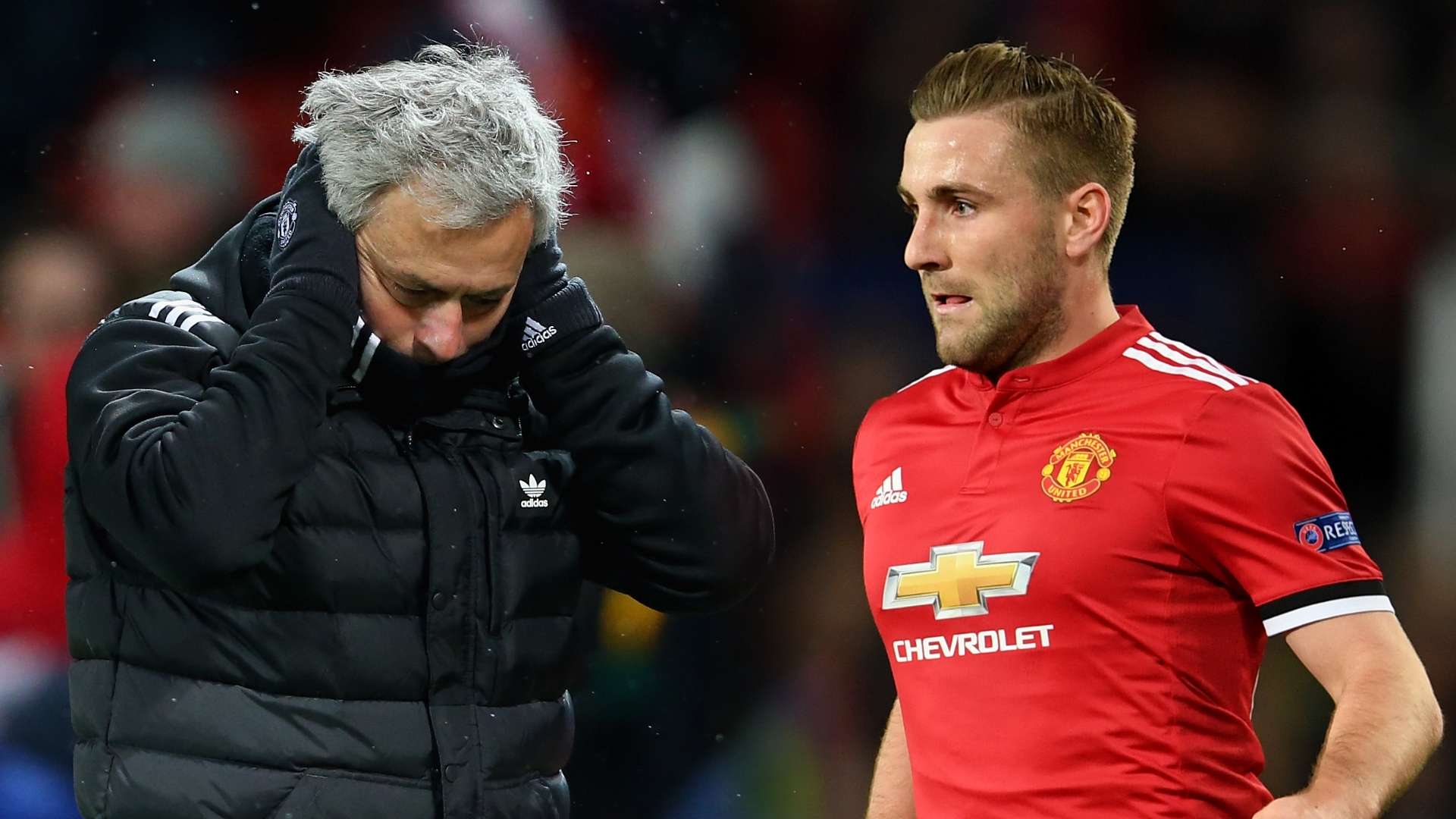 Getty
Getty
Shaw was one of the first to draw his ire just five games into his first league campaign, identifying him as the guilty party in Watford’s second goal in a 3-1 reverse. Just a few weeks later, Chris Smalling joined the left-back on the naughty step when both ruled themselves out of the trip to Swansea through injury.
“There is a difference between the brave, who want to play at any cost, and the ones for whom a little pain can make a difference,” said Mourinho. “If I were to speak with the many great football people of this team, they will say they played many times without being 100%.
“We have players on the pitch with problems. In every sport, how many times do you play and you’re not 100%?”
Latterly he has asked Martial to bring out the Mourinho in himself in order to win favour. “Is Anthony player with great potential? Yes. Can he play for success with me? Yes. But he needs to give things for me that I like.”
And that is something Mourinho has continued to struggle with throughout his Old Trafford reign. Whereas at Chelsea and Inter he found players willing to buy into everything, at United the expectations of established internationals have not been on Jose’s wavelength. A manager who demands tough personalities is yet to be convinced that his squad has enough of them.
His choice of words when hailing the retiring Michael Carrick last week was noticeable.
“The most important quality is to be a man. M-A-N. Capitals. He is a proper man,” said Mourinho.
“Football is not full of them. And not just football; society is not full of them. When you find one of them, you have to value and you have to keep.”
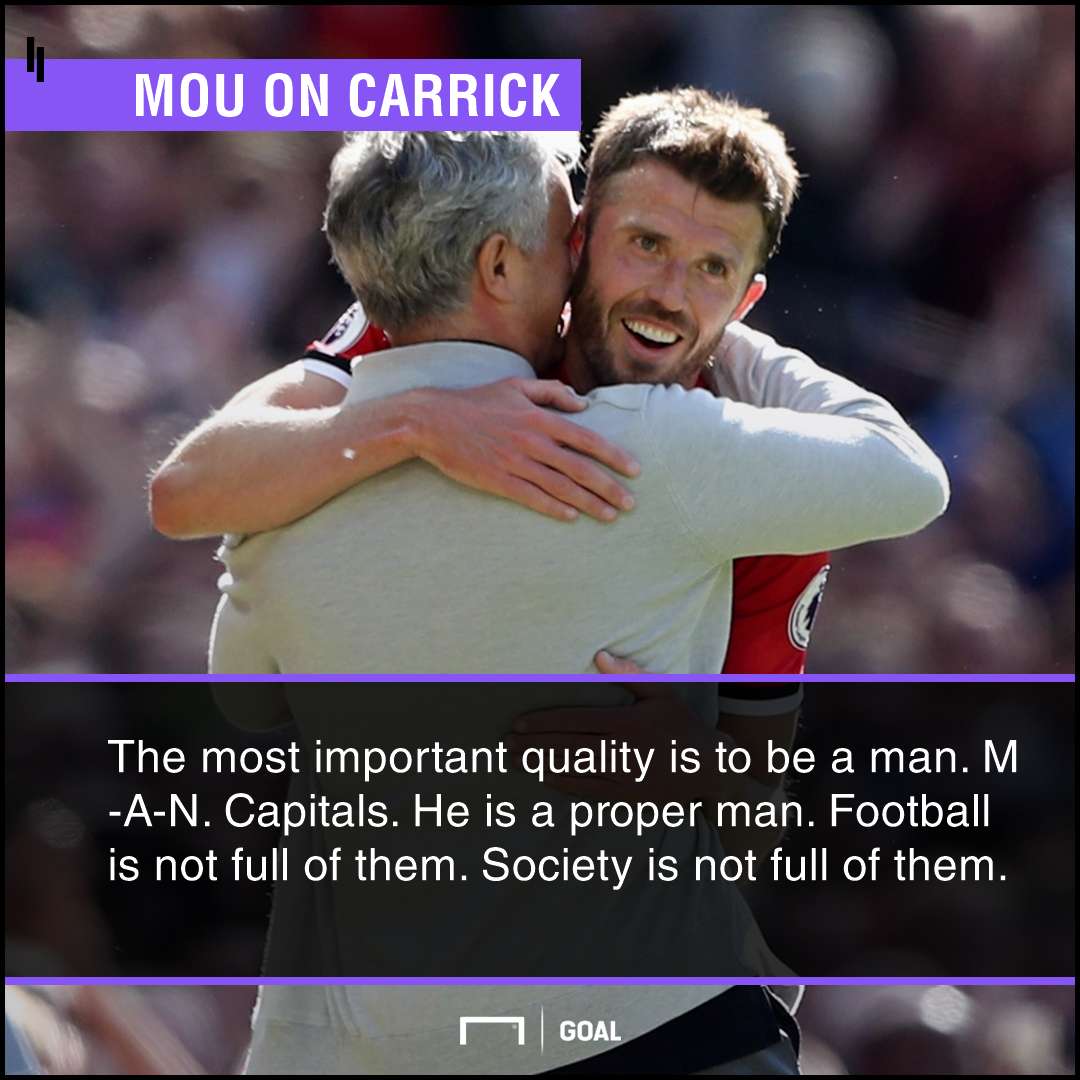
It is clear when he says that that he believes his squad to be short on ‘proper men’ too. In fact, it is evident in how he talks and acts around his players that he remains unconvinced by them. The planets have not aligned for him in Manchester as they did in west London.
“Jose could not have come in at a better time,” his former Chelsea charge Joe Cole once claimed to the Sun. “It was the perfect team for him at that stage of his career.
“He had 20 hungry lions desperate to win things. It was the easiest team to manage. He did not have big egos, we all wanted to play football and we all went out together.”
As he faces up to Antonio Conte’s current Chelsea side on Saturday, one thing Mourinho knows is that he has still only just started in getting Manchester United to play in his vision. The big, powerful machine that was his Blues squad for so long is still far from being replicated in the north west. There is a lack of those hungry lions of whom Cole speaks.
“Mentally and psychologically, he had us from day one. We bought into whatever he was going to deliver that day,” John Terry told Sky Sports of Mourinho. "I would give everything for him. I would leave that pitch in a coffin for him and every player felt the same.”
The challenge now is for ‘The Special One’ to coax a similar response from a squad most of whom he has yet to convince. It just so happens it is the club at which he did his greatest work who seek to send him into the summer with another headache.
